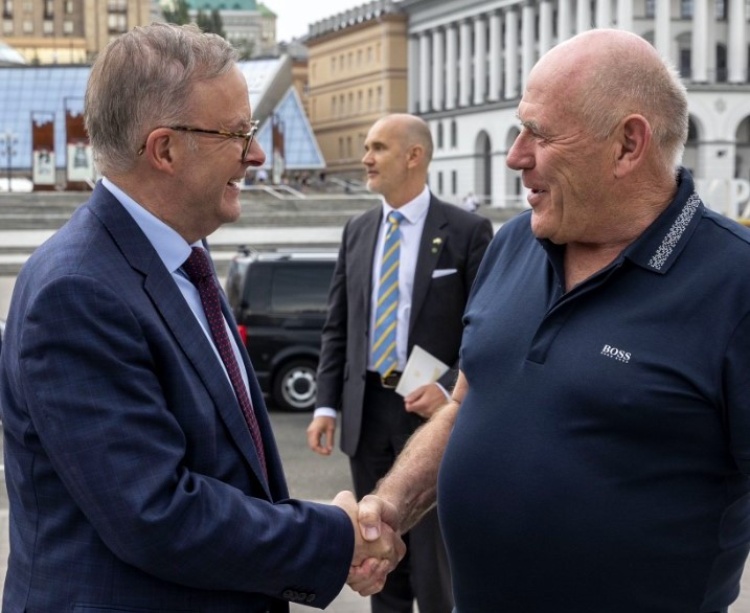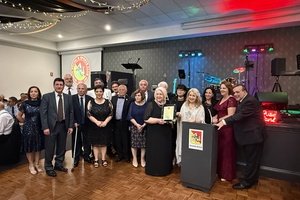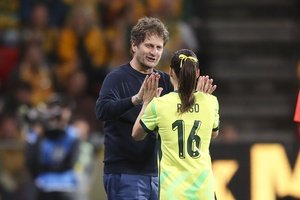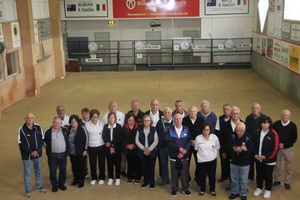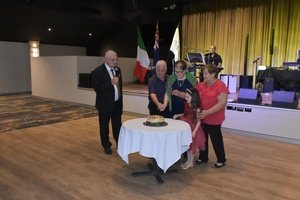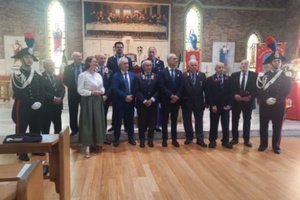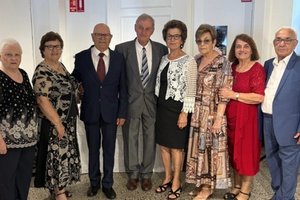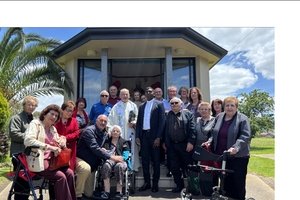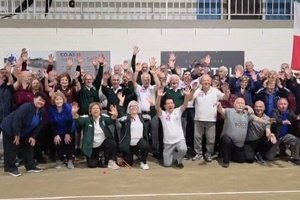Mr Stefan Romaniw OAM was a pillar of the Australian community in many ways. He was instrumental in the fields of community languages education and multiculturalism more broadly. He was even called the ‘revered son of Ukraine’ by the Ukrainian World Congress for his work towards peace in the current conflict.
Last week, this humble thought-leader and visionary of multiculturalism was acknowledged in a State Service held at Sts Peter and Paul Ukrainian Catholic Cathedral in North Melbourne.
Many came from across Australia to join Stefan’s family at the ornately decorated Cathedral in honour of the man gone too soon.
Guests included representatives from the Governor General of Australia and the Governor of Victoria, former prime minister the Hon Tony Abbott, ministers from both sides of politics past and present – the Hon Andrew Giles, Ingrid Stitt MP, Tim Watts MP, Robin Scott MP, Matthew Guy, Anne Eckstein MP and former premiers of Victoria, the Hon Jeff Kennet and Ted Baillieu.
They joined a host of representatives from myriad peak bodies and leaders of multicultural communities to mourn a man who had walked the corridors of federal and state parliament as a staunch advocate for multiculturalism and social cohesion.
Professor Mark Rose, Stefan’s long-time school friend and proud Gunditjmara man, provided a beautiful Acknowledgement of Country and spoke of his personal memories of Stefan.
The service that followed was held in both Ukrainian and English and took place under the blue and yellow dome of the Cathedral. Yellow sunflowers, the national flower of Ukraine symbolising resistance, unity and hope, adorned the casket.
Former Labor leader Bill Shorten, representing Anthony Albanese, spoke of Stefan’s remarkable legacy for the Australian community and of his own personal interactions with Stefan over many years, including banter over footy and Stefan’s beloved Essendon FC.
Among the many mourners were those from the community languages sector. They represented established and emerging communities, and all came together to honour a man who had given them the opportunity to pass on their language and culture to thousands of children over several generations.
Stefan served as state Executive Director of Community Languages Australia, and of Community Languages Victoria. His work in unifying the single ethnic school after hours courses into a thriving and united sector has been remarkable.
This work ensures that communities feel a sense of belonging and are able to contribute to the multiculturalism which characterises Australia without losing their cultural heritage.
The sector now brings together over 200 community languages including Ukrainian, Serbian, Dinka, Greek, Farsi, Tigrigna, Arabic, Mandarin, Japanese, Thai, Tagalog, Sinhala, Tamil and, of course, Italian.
There are over 100,000 students who gather at schools all over Australia to enjoy language programs delivered by a multitude of teachers.
Under Stefan’s leadership, this sector can boast many achievements such as the development of a community languages registration system, professional development and accredited training to ensure the sector has a strong foundation of quality education. Also, the development of a range of resources to ensure engaging, relevant and fun language programs.
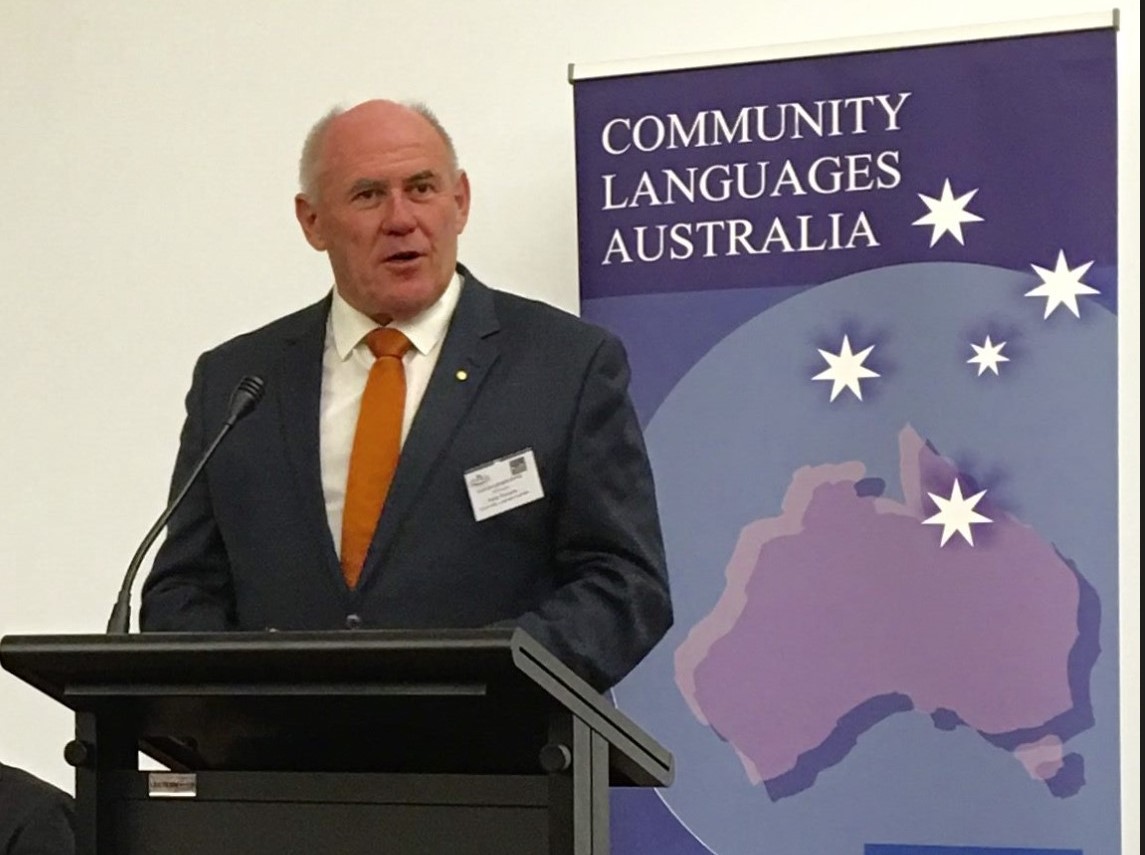
Stefan Romaniw OAM speaking at Community Languages Australia
Stefan was admired for his skill in negotiating government funding for this ever-increasing sector. The demand is always greater than the resourcing in a country that understands the social and economic benefits of multiculturalism. Funding ensures schools can pay rent for premises and supports the many language programs which range from early childhood to matriculation across Australia.
The Executive of each State and Territory in Australia representing the sector joined teachers and principals in grief as tears flowed freely at the State Service. The community languages sector know they have lost a fierce advocate – and a friend.
Son of a Ukrainian father and German mother who migrated to Australia, Stefan knew the hardship of migration. Like his parents, he was extremely proud to be Australian and respected the opportunities it afforded.
Stefan started his professional life as a primary school teacher. He ended up running the Ukrainian language school where he himself had learnt the language as a young boy.
He knew first-hand the importance of retaining the family language and sense of culture to ensure a strong sense of identity as migrants settled in a new country and established their families. He knew firsthand that language skills are instrumental to enabling meaningful communication across borders, maintaining intergenerational links and opening doors to economic opportunity.
For Stefan, there was no discussion on the rationale for languages – his focus was on constant improvement of language programs, “for the kids”, as he would say.
Stefan was a remarkable man who could sit with young children in a classroom and make them giggle just as easily as he could navigate a complex political system to lobby for aid to support Ukrainians impacted by the current conflict.
Stefan was a champion of multiculturalism. His advocacy centred on the rights of all to participate in Australian society. He was a long-standing Chair of the Victorian Multicultural Commission and Multicultural Arts Victoria, member of the Starlight Foundation Victorian Advisory Board and the SBS Community Advisory Committee. He chaired the Parliamentary Commission on Multiculturalism in the State of Victoria. He was also Chairman of the Parish Council of the Ukrainian Catholic Cathedral in Melbourne.
Further, he was the President of the Australian Federation of Ukrainian Organisations and first Vice President of the Ukrainian World Congress. He received three levels of Orders of Recognition and Medals from the President of Ukraine.
Stefan’s circle of influence was immense, so much so that the service was live streamed for mourners who joined across Australia and countries such as Canada, Poland and Ukraine.
Personally, I had the privilege of working with Stefan for 30 years in the community languages sector. It is difficult to accept that he will no longer sit me down to brainstorm a project, work through some bureaucratic challenge or plan an initiative which always focused on empowering multicultural communities through languages. Like everyone, I always left each meeting with a smile – and wondering how on earth he managed to convince me to engage in yet another project.
His talent was bringing people together. He would connect people across the community, diffuse tensions, focus people on working together collaboratively and manage to cut through mountains of red tape to ensure strong outcomes for the community.
The last time I saw him was the 50th Anniversary of the Ethnic Communities Council of Victoria just weeks ago. He moved through the crowd of many VIPs stopping to chat to each who he had met, and often worked with, throughout his career.
As usual, he started with three minutes of business-talk, and then came the playful teasing that was based on years of familiarity. He always retained his cheeky sense of humour and disarming grin. They were two of Stefan’s trademark qualities.
His leadership and his warmth were both remarkable. Somehow, he was always retained the cheekiness he had as the kid who grew up running around the streets of Tullamarine in Victoria. The boy who loved playing footy on the grounds of St. Bernard’s College in Essendon. He was known to be spiritoso and, perhaps, he surprised his own teachers with the accomplishments he both achieved and facilitated through his leadership and mentoring. Perhaps not - maybe they saw something in him too.
Underlying all the work Stefan undertook in Victoria, Australia and abroad, his greatest love was his family. Anyone who knew him quickly came to understand his deep devotion to his wife, Anastasia, and two children, Peter and Teresa. He had a huge heart that seemed to expand tenfold when his grandchildren came into the world. He was the embodiment of a doting grandfather.
As Bill Shorten MP said, “the world cannot afford to lose Stefan. Ukraine cannot afford to lose Stefan. Australia cannot afford to lose Stefan.”

